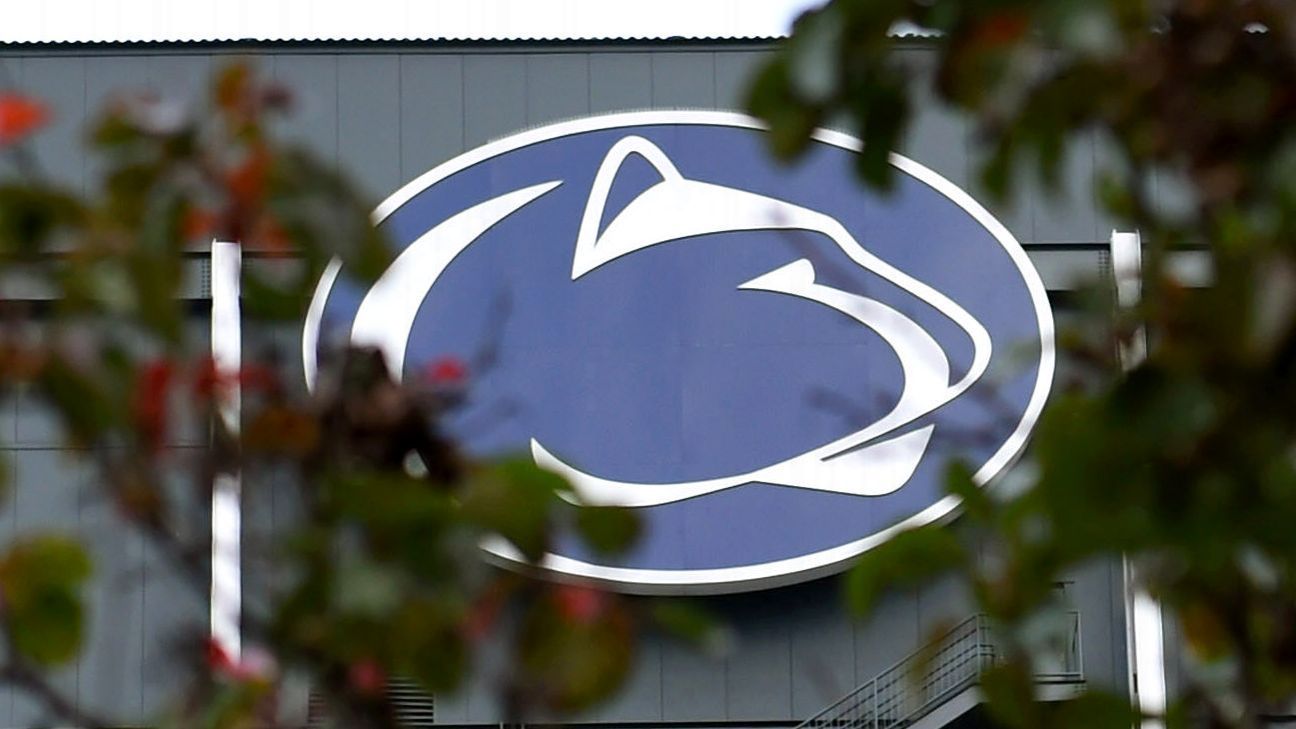A jury is scheduled to hear claims Monday that Penn State officials removed a team doctor after he complained that head football coach James Franklin was interfering in medical care for athletes and putting their health and safety at risk.
Orthopedic surgeon Dr. Scott Lynch sued in August 2019, about six months after being removed as football team orthopedic physician and director of athletic medicine at Penn State, a position he had held since 2014.
Lynch said the removal was retaliation for having complained about Franklin. According to a revised complaint filed in 2021, on “multiple and repeated occasions, Coach James Franklin attempted to interfere with the plaintiff’s autonomous authority to determine medical management and return-to-play decisions related to student-athletes.”
“The medical profession’s duty is to the patient, not to help a coach win games and/or keep their job,” Lynch told ESPN. “When a coach tries to insert themselves into the patient’s risk/benefit equation, it is wrong, and it must not be tolerated. There needs to be independent oversight of medical care.”
“I am hoping that my case can be a catalyst for the rest of the country.”
Officials with Penn State and with the university system’s Milton S. Hershey Medical Center, where Lynch is still employed as an orthopedic surgeon and Director of Sports Medicine, have denied any claims of retaliation. They say that Lynch — who lived and commuted from his home about 100 miles away in Hershey, Pa. — was removed so the school could hire a physician who lived in the State College community.
A spokesperson for Penn State did not address the allegations about Franklin’s behavior but said in a statement emailed to ESPN Friday, “Student-athlete health, safety, and wellness is a top priority for the University and Coach Franklin, and Penn State is proud of the professionals in Penn State Athletics and throughout the University dedicated to these substantial efforts.”
Lynch’s attorney, Steve Marino, said he was not planning to call Franklin or any athletes to testify, but would rely on the testimony of other sports medicine personnel. Former Big Ten Commissioner Jim Delaney is also on the list of potential witnesses.
Marino and Lynch, in prior interviews, have declined to offer examples of what they’ve said are Franklin’s attempts at interference but said those would likely come out at trial.
While Franklin and Penn State University are referenced in the lawsuit, both were dismissed as defendants in 2020. Lynch is suing Penn State Health’s Milton S. Hershey Medical Center and Dr. Kevin Black, the supervisor who announced his removal. The lawsuit states that Lynch reported Franklin’s “wrongdoing and infraction” to Black, to then-athletics integrity officer Robert Boland and to then-athletic director Sandy Barbour, among others.
It states that around Jan. 24, 2019, Barbour and deputy athletics director Charmelle Green “communicated a demand” to Black that Lynch be removed, and less than two weeks later, Black announced that Lynch would be replaced effective March 1, 2019.
In a statement issued after Lynch’s lawsuit was filed, Penn State Health said that the move to a new team physician, “was completed with the best interests of student-athletes in mind, given the increasing complexity and growing demands of sports medicine, as well as health care in general.” It rejected Lynch’s claims but thanked him for his continued affiliation with the medical center.
In his email to ESPN, Lynch criticized universities and the NCAA for not doing enough to protect medical staff. “The amount of money they are making taints their ability to be objective,” he said.
In 2019, the NCAA Division I Board of Directors passed legislation to ensure athletics health care providers have “unchallengeable” authority in making medical and return-to-play decisions for athletes, and required each school to designate an athletics health care administrator to help facilitate. An NCAA spokesperson said he was unable to gather information on what the NCAA had done since then on independent medical care and if it knew how many schools were in compliance.
Kathy Dieringer, president of the National Athletic Trainers Association, whose members work with and sometimes report to team doctors, said the NCAA’s document on medical autonomy has backed up athletic trainers in insisting on independent decision making. She added that the pandemic “made things better” for sports medicine professionals because they received more respect and appreciation for often taking the lead in implementing COVID protocols and keeping students safe. But she said she couldn’t speak to what the NCAA is doing on enforcement or how often athletic trainers still deal with coaches trying to interfere.
“Is it as great as it could be?” she said. “I think, as with anything, there’s going to be exceptions.”
It’s unusual for this issue to be tested in a court of law. Dieringer said she wasn’t aware of another case like it. While she said she couldn’t comment directly on the lawsuit, “it certainly highlights the importance of medical decision-making autonomy.”
